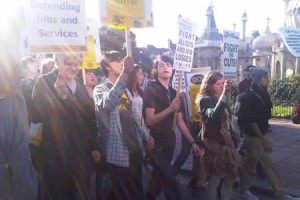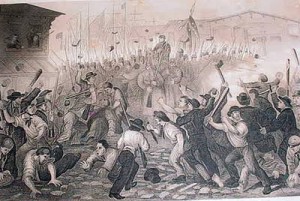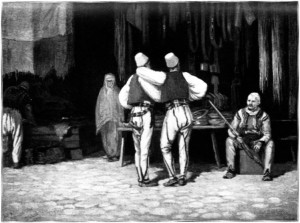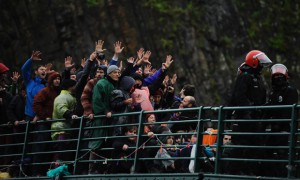CfP: Protest and the University of Brighton
Friday, January 24th, 2014
Protest and the University of Brighton
One Day Symposium
Critical Studies Research Group
Centre for Applied Philosophy, Politics and Ethics
Saturday 10th May 2014
The Critical Studies Research Group (CSRG) and the Centre for Applied Philosophy, Politics and Ethics (CAPPE) are organising a one day symposium on the topic of ‘Protest and the University of Brighton’. The symposium aims to offer a history of protest at the University of Brighton; a counter-narrative identifying Brighton as a political university (as opposed to its typical identification as ‘non-political’, contra University of Sussex’s ‘politicalness’); and a theoretical account of protest in higher education more generally.
To this end we are accepting abstracts for presentations that respond to these aims. Topics may include, but are not limited to:
- the relationship between the University and the wider community;
- the Students’ Union and its relationship to protest;
- trade union protest at the University;
- privatisation at the University;
- the lived experience of academic life;
- the revolutionary past of the University;
- the ethics of disruptive protest;
- protest in education;
- protest as education;
- the function of occupation;
- the governance of the University;
- The ‘Prevent Strategy’, the University and the United Kingdom Borders Agency.
While we encourage papers that respond directly to the context of the University of Brighton, abstracts will also be accepted which deal with issues of privatisation, activism and the criminalisation of protest in other institutional contexts. In this way a key aim of the conference is to make visible the links between the struggles occurring within higher education, and the struggles surrounding immigration and asylum rights, anti-austerity protest, state racism, and other forms of resistance to “social abjection” (Imogen Tyler, Revolting Subjects).
The conference fee will be £20 waged, free for unwaged / students.
Abstracts of no more than two hundred words should be sent to Tim Huzar: t.huzar@brighton.ac.uk. The deadline for abstracts is Friday 28th February.
The CSRG was founded in 2011 by postgraduate students in the School of Humanities, University of Brighton, with the aim of providing an interdisciplinary forum for the discussion of critical ideas and practices in light of the socio-political struggles we face today. The challenges that interdisciplinarity might pose are counteracted by our shared interest in the role and scope of critical thought and practice in the context of contemporary capitalism.
CAPPE was founded in 2005, with the aim of bringing together philosophy both with other disciplines and with the wider public. It intervenes in the public arena on the basis of a commitment to rigour, clarity and criticism and to extend the practice of philosophy beyond its narrowly academic boundaries.



